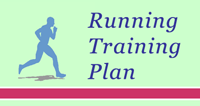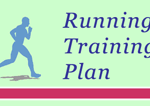Summary
online survey. It is for anyone who runs (or has run) barefoot or in very minimalist shoes (a distinction is made in the survey). We are particularly interested in established runners who have introduced barefoot running to their schedules. After completing the survey, participants can view statistics and also choose to receive updated reports as the data builds.
Story
There is no doubt, for anyone who is thinking about introducing some barefoot running to their schedule, or even starting to run completely barefoot, reliable information can be hard to define.
Of course, this will always be the case; there will always be differing opinions on the subject. There can be no universal recommendation for all runners — we are all different. We all have our own reasons for considering the option to run without shoes. For some, it might be something that seems to make sense and we might want to run some of our training miles barefoot to explore the benefits that have been suggested. Others might want to ditch the shoes altogether, with the intention of never wearing conventional (or any) running shoes again. So, understandably, views on barefoot running are extremely varied.
It’s not just opinion though, many supposed experts have appeared on the scene offering their take on the research that has been conducted. We can readily find information that will tell us that running barefoot is for fools and that barefoot runners are to be exposed for the nutters they are. We can read from trusted sources about the real dangers of jumping on the barefoot running bandwagon. We need to take all of this stuff seriously, it is not out there on the periphery, in some dusty corner of a library in a town where the only movement is tumbleweed. No, this information can be found on the front page of the largest reference resource on the subject that the world has ever seen.
Right alongside those words, are views that are diametrically opposed. We can read about how running barefoot will completely transform our running: make us injury resistant, fitter and faster. Who is right? And more importantly, how can we tell who is right? Yes, we can read research, but research can be just like statistics, often impossible to decipher and open to be interpreted according to the commentator.
The dust is beginning to settle on the barefoot running debate, and the fact that we are all human ensures that the dust is scattered everywhere.
Anecdotal evidence is often ridiculed by scientists, but the fact remains we do not run in laboratories (at least most of us don’t), we like to see what has or hasn’t worked for other people who run in the real world; it’s collective knowledge.
We are looking to build collective knowledge on barefoot running. So that barefoot runners — new and old — can see what other barefoot runners — new and old — have encountered on their own journeys.
If you want to add your own experiences to the pot, you are invited to take a few minutes (probably between 5 and 10) to complete a survey, it’s for anyone who has run barefoot and/or in very minimalist shoes (a distinction is made). You’ll see a summary of results after completing it and if you want, you can choose to receive more detailed reports as the data builds.
Related Links
Gallery
- Running Training Plan


